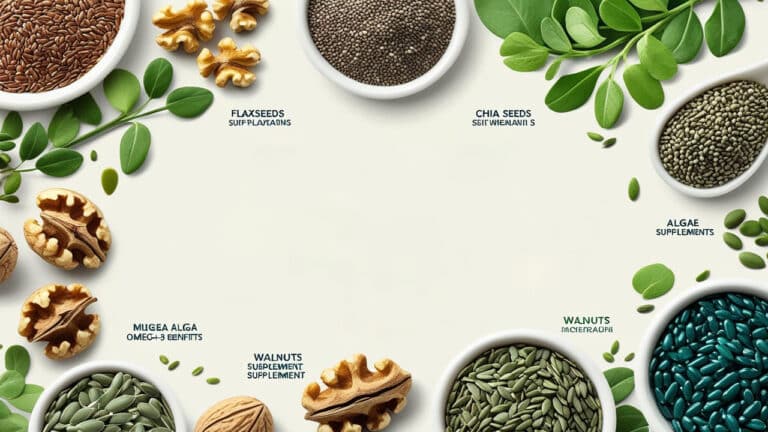Our brain, often called the body’s command centre, is an intricate web of connections that govern our thoughts, emotions, and actions. It requires essential nutrients to maintain its optimal function, and one of the most remarkable among them is omega-3 fatty acids. This blog delves into the fascinating world of Omega-3 and explores its profound benefits for brain health. Additionally, I’ll introduce you to a unique source of Omega-3: krill meat, which offers an alternative and sustainable way to reap these cognitive advantages by adding krill recipes to your diet.
Omega-3 Fatty Acids
Omega-3 fatty acids are polyunsaturated fats essential for the proper functioning of our body, especially the brain. The three most important types of Omega-3s are:
Eicosapentaenoic acid (EPA): EPA, known for its anti-inflammatory properties, also plays a crucial role in brain cell communication and function.
Docosahexaenoic acid (DHA): It’s a major structural component of the brain and contributes to its overall health. It aids in memory, cognitive function, and the transmission of nerve signals.
Alpha-linolenic acid (ALA): Although not as potent as EPA and DHA, ALA is still essential for brain health since it can be converted to EPA and DHA in the body.
Omega-3 Benefits For The Brain
Omega acids are essential nutrients that are essential for maintaining optimal brain health. These healthy and natural fats are crucial in brain function, development, and maintaining cognitive function throughout life. Some of the key benefits of omega-3 for brain health include:
Enhanced Cognitive Function
Omega-3s, particularly DHA, are vital in maintaining and improving cognitive function. They are integral to brain cell structure and function and crucial for memory, problem-solving, and decision-making.
Reduced Risk of Cognitive Decline
Eating foods rich in Omega-3 fatty acids may help reduce the risk of age-related cognitive declines and neurodegenerative diseases, such as Alzheimer’s and dementia. Studies have shown a connection between consuming more Omega-3 fatty acids and a lower risk of these conditions.
Mood Regulation
Research linked the consumption of Omega-3 fatty acids to an improvement in mood and a lower risk of depression. They support the brain’s production of neurotransmitters such as serotonin and dopamine that regulate mood.
Improved Attention and Focus
Omega-3s may enhance attention span and concentration, making them beneficial for individuals of all ages, especially children with attention deficit disorders.
Neuroprotective Properties
These types of fats contain substances that can protect brain cells from being damaged by inflammation and oxidative stress. They possess anti-inflammatory and antioxidant qualities, which can be beneficial.
Krill Meat as a Unique Source of Omega-3
Now, let’s introduce krill meat as an alternative and sustainable source of Omega-3 fatty acids. Krill are small, shrimp-like crustaceans abundant in the world’s oceans. They are a vital part of the marine food chain and are known for their remarkable nutritional content, including Omega-3s. Here’s why krill meat stands out:
Higher Bioavailability: Omega-3s in krill oil are bound to phospholipids, which make them highly bioavailable to the human body. This means your cells can absorb and utilize these fatty acids more efficiently.
Sustainability: Harvesting krill for Omega-3 production is considered environmentally friendly. The vast and sustainable krill population makes it a responsible choice for Omega-3 supplementation.
Additional Nutrients: Krill meat is a rich source of other essential nutrients, such as astaxanthin (a potent antioxidant) and choline (important for brain health and development).
Reduced Risk of Contamination: Krill are less popular in the food chain, which means they are less likely to accumulate toxins and heavy metals that can be found in larger fish.
Incorporating Omega-3s from Krill Meat into Your Diet
If you’re looking to harness the brain-boosting benefits of Omega-3s from krill meat, here are some amazing recipes to integrate them into your diet:
- Krill Bahn Mi: Experience the fusion of flavors with a Krill Bahn Mi sandwich, where the Omega-3-rich krill meat pairs perfectly with the vibrant, fresh ingredients of this Vietnamese-inspired delight.
- Krill Caesar Dressing: Elevate your salads with a Krill Caesar Dressing that not only adds a delightful umami twist but also brings the goodness of Omega-3s to your plate.
- Krill Cheese Melt: Indulge in a Krill Cheese Melt that combines the creaminess of melted cheese with the nutritional benefits of krill meat, creating a satisfying and wholesome snack.
- Krill Stuffed Clams: Indulge in the oceanic flavors of Krill Stuffed Clams, where succulent krill meat tantalizes your taste buds and supports your health.
Conclusion
Omega-3 fatty acids are undeniable champions of brain health, supporting cognitive function, mood regulation, and overall mental well-being. While Omega-3s are traditionally associated with fish oil, krill meat presents an equally viable and sustainable source. By incorporating Omega-3s from krill meat into your diet, you can take proactive steps to nurture your brain and support its optimal functioning.











